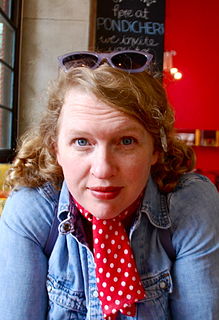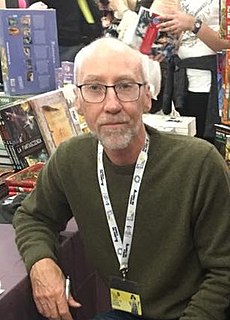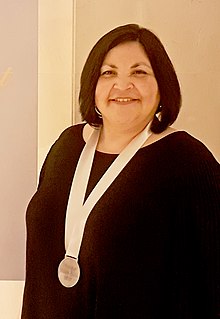A Quote by Tom Waits
If you're a writer you know that the stories don't come to you, you have to go looking for them. The old men in the lobby: that's where the stories were.
Related Quotes
You grow a whole lot more as a writer by getting old stories out of the house and letting new ones come in and live with you until they grow up and are ready to go. Don't let the old ones stay there and grow fat and cranky and eat all the food out of the refrigerator. You have dozens of generations of stories inside you, but the only way to make room for the new ones is to write the old ones and mail them off.
What does it matter, if we tell the same old stories? ...Stories tell us who we are. What we’re capable of. When we go out looking for stories we are, I think, in many ways going in search of ourselves, trying to find understanding of our lives, and the people around us. Stories, and language tell us what’s important.
The earliest influence on me was the movies of the thirties when I was growing up. Those were stories. If you look at them now, you see the development of character and the twists of plot; but essentially they told stories. My mother didn't go to the movies because of a religious promise she made early in her life, and I used to go to movies and come home and tell her the plots of those old Warner Brothers/James Cagney movies, the old romantic love stories. Through these movies that had real characters, I absorbed drama, sense of pacing, and plot.
We're looking for stories that speak to us. We're looking for stories that connect us with something true. But, instead, a lot of the time we get strippers. All I'm saying is, when boys are writing the stories, the percentage of strippers is bound to go up. And real stories about real women kinda don't get written at all.
I love the smell of a theater. The old rooms and the carpet and all that stuff. I love to tell stories. Even before I was doing music, I saw myself as a director. So most of my songs come in a play form, you know, where there are characters and stories, so I like to go beyond just the song sometimes.
Each of us is comprised of stories, stories not only about ourselves but stories about ancestors we never knew and people we've never met. We have stories we love to tell and stories we have never told anyone. The extent to which others know us is determined by the stories we choose to share. We extend a deep trust to someone when we say, "I'm going to tell you something I've never told anyone." Sharing stories creates trust because through stories we come to a recognition of how much we have in common.
Long before I wrote stories, I listened for stories. Listening for them is something more acute than listening to them. I suppose it’s an early form of participation in what goes on. Listening children know stories are there. When their elders sit and begin, children are just waiting and hoping for one to come out, like a mouse from its hole.
I have never been able to understand the complaint that a story is "depressing" because of its subject matter. What depresses me are stories that don't seem to know these things go on, or hide them in resolute chipperness; "witty stories," in which every problem is the occasion for a joke; "upbeat" stories that flog you with transcendence. Please. We're grown ups now.
No woman or man is any one thing and the men in my stories, well, some of them are good and some of them are terrible, and most of them make the lives of the women they love much harder than need be. Why? Because that's the kind of storytelling I was drawn to when I wrote these stories, most of which are at least seven years or more old.
There were always men looking for jobs in America. There were always all these usable bodies. And I wanted to be a writer. Almost everybody was a writer. Not everybody thought they could be a dentist or an automobile mechanic but everybody knew they could be a writer. Of those fifty guys in the room, probably fifteen of them thought they were writers. Almost everybody used words and could write them down, i.e., almost everybody could be a writer. But most men, fortunately, aren't writers, or even cab drivers, and some men - many men - unfortunately aren't anything.



































